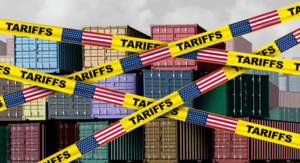
The Geopolitics of Olympic Medals (Paris Olympic Games, 2024)
The Geopolitics of Olympic Medals reveals fascinating insights into global power dynamics, as seen in the 2024 Paris Olympic Games. Countries with substantial GDPs, like the United States, China, and the United Kingdom, often dominate the medal tally due to their economic might and large populations, which provide a vast pool of athletic talent. However, economic strength alone does not guarantee success.
Effective national sports policies, athletic traditions, and specialized training environments also play crucial roles. Despite an increasingly multipolar world, Olympic achievements remain largely concentrated among a few wealthy nations, highlighting the intricate interplay between wealth, culture, and athletic excellence.
The Geopolitics of Olympic Medals
The distribution of Olympic medals often reflects broader geopolitical realities, where economic power, population size, and cultural factors significantly influence athletic success. The 2024 Paris Olympic Games offer a clear illustration of these dynamics, where countries like the United States, China, and Japan, alongside several European nations, dominated the medal tally.
This article explores six key points to understand the geopolitics behind Olympic medal distribution.
Table of Contents
1. Economic Power and Olympic Success
A strong correlation exists between a country’s economic power and its success in the Olympics. The top medal winners in the 2024 Paris Olympics—such as the United States, China, Japan, Australia, France, the Netherlands, and the United Kingdom—are all among the world’s 20 largest economies.
The Gross Domestic Product (GDP) of a nation often dictates its ability to invest in sports infrastructure, training facilities, and athlete development programs. Countries with substantial economic resources can afford to fund comprehensive sports programs, hire top-tier coaches, and provide their athletes with the best training conditions and technologies.
For example, the G7 countries, which contribute to about 43.5% of the global GDP, secured approximately 33.8% of the total medals in Paris. Similarly, nations in Africa, which together account for around 3% of the world economy, won 3.7% of the total medals. This pattern suggests that economic capacity plays a critical role in a country’s Olympic performance.
Read More: The Economics of Techno-Colonialism
2. Population Size and Talent Pool
Another significant factor influencing Olympic success is population size. Countries with larger populations have a broader base of potential athletes, increasing the likelihood of producing world-class competitors in various sports. For instance, the United States and China, two of the most populous nations, consistently rank high in the Olympic medal counts due to their vast talent pools and well-established sports programs.
However, population size is not the sole determinant. India, with its population of 1.4 billion, ranked 71st in the 2024 Olympics, whereas Australia, with a population of just 26 million, secured fourth place with 5% of the total medals. This disparity indicates that while a larger population can provide a larger talent pool, other factors, such as sports infrastructure, cultural emphasis on sports, and effective sports policies, are crucial for converting potential into actual Olympic success.
Read More: Is Central Bank Independence Still Effective?
3. The Role of National Sports Policies and Cultural Traditions
Effective national sports policies and deeply rooted athletic traditions also play a significant role in Olympic success. The European Union (EU) member states, for instance, accounted for nearly 30% of the medals in Paris, despite representing only 17.5% of global GDP. This overperformance suggests that the EU’s strong emphasis on sports and comprehensive sports policies contributes to its success on the international stage.
Many Olympic sports, such as fencing, gymnastics, and swimming, have deep historical roots in Europe, which has helped maintain a competitive edge in these disciplines. Furthermore, countries like Australia and Japan have shown that strategic investments in sports development and nurturing a sports culture can lead to substantial Olympic success, despite relatively smaller populations.
Read More: A New Economics Of Industrial Policy
4. The Complexity of Asia’s Olympic Performance
Asia presents a unique case in the geopolitics of Olympic medals due to its political, economic, and cultural diversity. Countries like China and Japan are major sporting powerhouses with significant investments in sports infrastructure and athlete development.
In contrast, countries in the Indian subcontinent have a relatively modest Olympic record despite having large populations and growing economies.
India, with its large economy and vast population, demonstrates the complexity of predicting Olympic success solely based on GDP and demographics.
Despite these advantages, India’s 71st place in the 2024 Olympics reflects a lack of sports infrastructure, inadequate investment in training facilities, and a cultural emphasis on academics over athletics. This highlights the importance of tailored sports policies and investments in driving Olympic success.
Read More: The Rise of the Finternet
5. Impact of Athletic Culture and Accessibility of Sports
Athletic culture and the accessibility of specific sports also influence Olympic outcomes. Certain countries excel in particular sports due to cultural traditions and natural advantages. African nations, especially those in East Africa, have a long-standing tradition of middle- and long-distance running, largely attributed to training at high altitudes.
This cultural and environmental advantage has led to success in track and field events, which require less sophisticated infrastructure compared to other Olympic sports.
Conversely, sports like swimming, gymnastics, and fencing remain dominated by wealthy Western countries and China, as these disciplines require significant investment in facilities and access to high-level coaching.
Athletes from countries with less developed sports infrastructure often need to train abroad to reach the top levels, as seen with French swimmer Léon Marchand training in the U.S. and Algerian gymnast Kaylia Nemour training in France. These disparities underline the importance of both cultural factors and access to sports infrastructure in achieving Olympic success.
Read More: The Economics of Philanthropy
6. Towards a More Multipolar Olympic Landscape
The 2024 Paris Olympics demonstrated a more open and competitive global landscape, with 92 of the 206 participating countries winning medals. This suggests a shift toward greater multipolarity in the sports world, reflecting changes in the global economic and political order.
However, despite this apparent diversification, half of the medals were still concentrated among G7 countries and China, which together account for 60% of global GDP.
This concentration indicates that while there is movement toward a more multipolar Olympic landscape, this shift is slower and more limited than might be expected. Economic power, effective sports policies, and cultural traditions continue to play a dominant role in shaping Olympic outcomes.
As global economic and political dynamics evolve, it remains to be seen how these changes will influence the geopolitics of Olympic medals in the future.
Read More: Impact of Ukraine Conflict on Russia’s Naval Power in the Black Sea
Bottom Line
The distribution of Olympic medals is far from a simple reflection of athletic ability; it is deeply intertwined with economic power, population size, national sports policies, cultural traditions, and the accessibility of sports. While the world moves towards greater multipolarity, the concentration of medals among economically powerful nations shows that there is still a significant way to go before the playing field is truly level.
The geopolitics of Olympic medals thus offers valuable insights into broader global dynamics, highlighting the complex interplay between economics, culture, and athletic achievement on the world stage.





